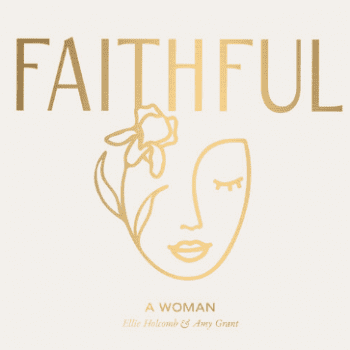Ruth
 When God gave his Law to the future landowners of Israel, he included, “You shall not reap your field right up to its edge, nor shall you gather the gleanings after your harvest. You shall leave them for the poor and for the sojourner: I am the Lord your God” (Lev. 23:22). After Israel conquered the Promised Land and settled, a Moabite woman returns with her Israelite mother-in-law, Naomi. They are widowed and poor, but Ruth gleans in the fields so that she can provide for Naomi. The laws set forth during the forty years of wandering now apply to another sojourner, formerly of the Chemosh-worshipping Moabite people but now a Yahweh-follower famous for her moving declaration of faith, “Where you go I will go, and where you lodge I will lodge. Your people shall be my people, and your God my God. . .” (Ruth 1:16).
When God gave his Law to the future landowners of Israel, he included, “You shall not reap your field right up to its edge, nor shall you gather the gleanings after your harvest. You shall leave them for the poor and for the sojourner: I am the Lord your God” (Lev. 23:22). After Israel conquered the Promised Land and settled, a Moabite woman returns with her Israelite mother-in-law, Naomi. They are widowed and poor, but Ruth gleans in the fields so that she can provide for Naomi. The laws set forth during the forty years of wandering now apply to another sojourner, formerly of the Chemosh-worshipping Moabite people but now a Yahweh-follower famous for her moving declaration of faith, “Where you go I will go, and where you lodge I will lodge. Your people shall be my people, and your God my God. . .” (Ruth 1:16).
Once an outsider, Ruth became a heroine of the faith, a great-grandmother of King David (Ruth 4), and an ancestor of Jesus himself (Matt 1:5). But such a series of events would not have been likely had not Yahweh emphasized kindness to the outcast. Almost from the beginning, Moses conveyed Yahweh’s desire that his people include others: “You shall not oppress a sojourner. You know the heart of a sojourner, for you were sojourners in the land of Egypt” (Ex 23:9). In other words, “those” people are just like you, Israel. Welcome them! Show them who I am, that I might be glorified among the nations.
I wonder, did Ruth ever meet her second mother-in-law, Rahab? That’s right, Ruth married an upright man named Boaz, whose mother was Rahab (also Matt 1:5). Pretty cool! (Sometimes reading those genealogies pays off.) Their stories reveal the heart of God: he will be glorified, and even his own people’s reluctance to shine his light won’t prevent that. He used two women from pagan nations to make his name great. And the rest of his story reveals the same pattern.












